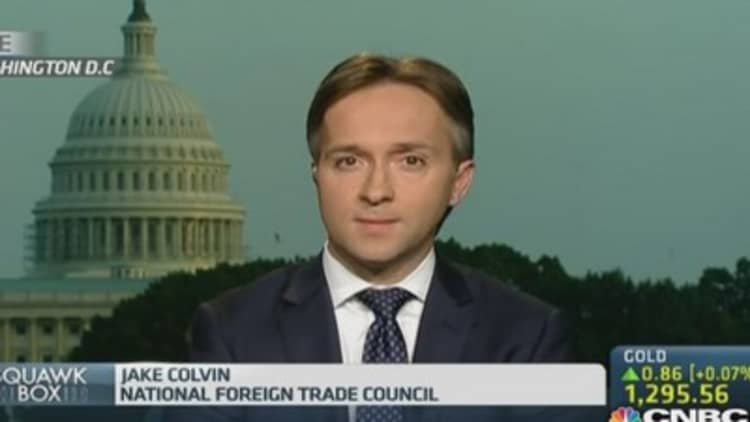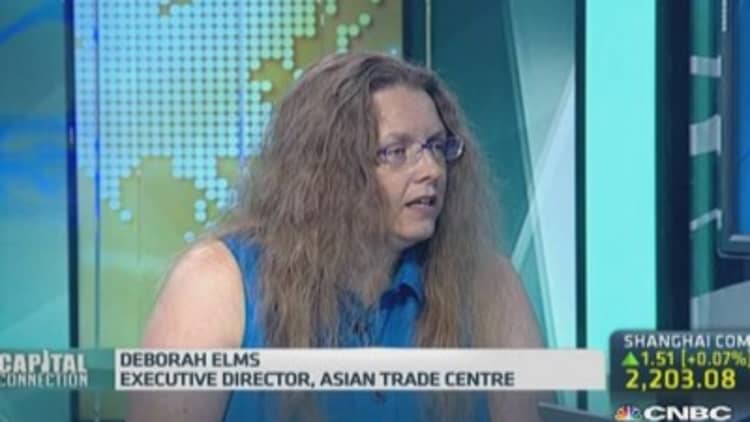
India's opposition to a global trade deal is akin to the country "holding a gun to its own head," and it risks derailing New Delhi's efforts to create an open-for-business image, analysts said.
A World Trade Organization (WTO) deal to standardize custom rules failed to go through on Thursday due to India's demands for concessions on food subsides.
Read MoreHow the BRICS bankcould hurt India's Modi
Mumbai is currently permitted to run food stockpiling programs and subsidies until 2017 thanks to a clause agreed upon in the December meeting of WTO members in Bali. But India is now demanding that the WTO start negotiations on the framework for its subsidized programs this year, rather than waiting for the 2017 deadline.
"India seems to be holding a gun to its own head here. The WTO facilitation agreed to in December is very much tied in to the food stockholding deal that India reached in the same meeting," said Jake Colvin, vice-president of global trade issues at the National Foreign Trade Council. "If the trade facilitation deal falls apart, it's going to put a lot of pressure on this public stockholding deal with India."
Once the 2017 deadline expires, India will be subject to the same rules as other developed members and may face penalties if food subsidies exceed 10 percent of production, according to the December agreement.
Read MoreFive reasons why India's rebound is real
Speaking to CNBC on Wednesday, Allan Bollard, executive director of the APEC Secretariat, said that it was unlikely restrictions on India's ability to subsidize farmers.
"A lot of countries are quite worried about the way India has built up food stocks and subsidized prices to very high levels, and then [potentially seeing] those flooding in the market and prices going down. Volatility on those prices is a big concern for producers so I don't think India has a lot of support on this [WTO opposition]," Bollard said.
The country's rice reserves stood at 21.2 million tons as of July 1 and wheat stockpiles were at 39.8 million tons - more than double the government's buffer requirements for both commodities.
A blow to Modi
Economists say that Prime Minister Modi sticking to old traditions of protecting rural farmers after being hailed as India's first modern leader in decades casts doubt on his ability to deliver on tough reforms.

"Modi's opposition is baffling on a couple of fronts. You saw this tremendous amount of optimism in the U.S. and around the world when Modi was elected that India is open for business. If the government does hold up this trade facilitation agreement, it's a disappointing signal to send to the world," said Colvin.
Optimism about Modi has gradually deflated since he came to power in May, especially on the back of a disappointing federal budget that failed to clarify how the country would overcome its massive budget deficit.
Read MoreIs 'Chindia' Asia's new dream team?
Glenn Levine, senior economist at Moody's Analytics, agrees, noting that Modi's hard-line stance on the WTO deal indicates that he is more populist than the international community had hoped for.
"This [the country's stance on the WTO deal] just proves that Modi cannot ignore the rural vote. The food subsidy scheme is inefficient and it's going to be tough to dismantle. It doesn't seem like a high priority for Modi," Levine added.


